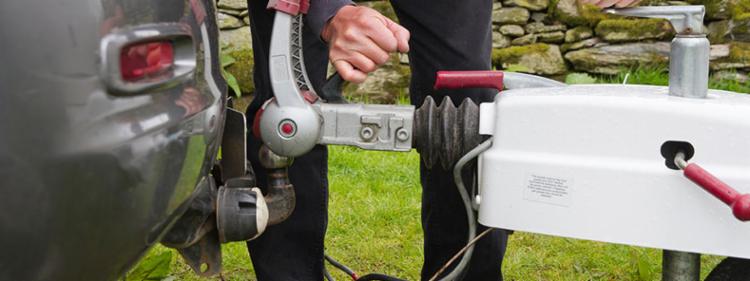Learn How to Buy Repo Cars

Buying repossessed cars can be a great way to save money. Buyers can often purchase a vehicle at a cost lower than fair market value. However, buying repo cars can be tricky, especially if you are unfamiliar with the way the repossessed car trade works, or how to find a repossessed car. You should always make sure you're covered with an affordable car insurance policy. We've put together a quick guide to help you find and buy repossessed cars safely and at minimum cost.
What Are Repossessed Cars?
The repossessed car meaning is simple; when a buyer fails to make payments or defaults on a vehicle loan or lease, the lender has the authority to take back the car without the need for legal action. Lenders can repossess cars from the registered owners if the registered owners default on car payments. The LA Times reports that, depending on the laws in your state, a payment may need to be late for just a few days in order for a bank to file a levy on a car and send an order to repossess it.
Most states enforce a 10-day grace period, however, before allowing lenders to repo autos. Also, most lenders would rather not take the car back because they depend on the interest paid on the loan to make a profit. They may work with customers for months trying to keep the loan going before the go so far as to repossess the vehicle.
That means that by the time the repo man shows up to take the car, the owner has probably already skipped a few months of payments. Many people who receive a notice of repossession from a lender use that opportunity to trash the car, shred upholstery, tamper with the engine, etc.
Others may have been in dire financial straits for some time and have lacked the cash to keep up with basic maintenance on the vehicle since the time of purchase. There may have been no oil changes, fluid checks, new tires, etc. for the life of the loan. Any or all of these conditions take their toll on the vehicle.
For this reason, no matter which route you take to find and buy repo cars, it is crucial that you inspect the vehicles thoroughly before purchase. There is usually no test drive, warranty or guarantee on a repossessed auto and often no returns either. That means once you sign and pay, it's yours, running or not.
Four Ways To Buy Repo Cars
1. Buy directly from the lender.
Sometimes your bank or credit union will allow you to look at their repo file, which lists all the cars and trucks they have repossessed and would like to sell. Often the lender just wants to recoup their losses, so you can get very good deals this way. Sometimes you can even get financing for the car directly from the lender that owns it.
The downsides to this method are that banks usually do not bother with the expense of cleaning up or repairing the vehicles before reselling them. They want to get their money back quickly and move on with the business of banking. So you may have your work cut out for you to get your new repo car road-ready after you buy it.
To buy bank repos this way, simply make a bid on the car you like from the repossession list. Make sure you know the vehicle's NADA Guide low value. The bank may refuse your offer or wait to hear other offers from dealers and other buyers. This part of the process may take a few weeks.
If your bid is the best the lender can find, you will usually have a chance to look the car over before paying and signing the paperwork. Make sure to bring a mechanically inclined friend with you when you make the final inspection if you don't know much about cars.
2. Buy repo vehicles from a reseller service.
These days, you can find many companies online that specialize in helping lenders get rid of their repossessed car inventory. Brandon Macomb, who has worked in repossession sales since 2003, says to look for companies that move the inventory from lender to buyer, without taking ownership. Dealers who buy repo cars and transport them prior to reselling them incur extra expenses, which will inevitably fall on the buyer.
The advantage of working with a reseller service is that these companies often keep up a standard for the condition of the cars. They may even take the initiative to clean and detail each repossessed vehicle and make sure the cars are running well before listing them for sale.
Another advantage is that, because sellers do not take ownership of the vehicles, they feel no great pressure to add a high margin to the price tag. In general, they would rather move a lot of inventory quickly, at a small markup, than take the time to make a large profit on each car.
To buy a repossessed car from this kind of seller, locate the vehicle make and model you would like online, from a service you trust. Macomb advises that you avoid resellers who charge viewing fees and other upfront payments before you see the car. Make a bid at or over the minimum bid.
If your bid is accepted, take the time to inspect the vehicle before making the final purchase. If you would like to purchase a vehicle out of state, which often happens for high-end items, you can hire an independent inspection service to inspect the car before the sale is final.
3. Buy a repossessed car at a police repo or lender auction.
The types of car auctions in the market are virtually limitless, with most selling to used car dealers, not individual buyers. They include government auctions, which offer impounded cars from the police lot, along with repossessed and confiscated vehicles.
If you find an auction that is open to the public, make sure you register beforehand, if required, and take a look at the inventory online before you arrive. The procedures for bidding and winning vary, so it's a good idea to attend an auction or two before you make your purchase. Usually, you will need an approved loan or cash in hand, and a deposit if you win.
The advantages of this venue are that you can take a look at stock beforehand, in most cases, and decide on your highest bid. You can also get better prices because of the lack of intermediaries involved. But be careful not to let the excitement of bidding make you pay more than a car is worth.
One of the disadvantages of the auction setting is that cars can be dirty and in disrepair at the time of sale. They may be full of trash, have worn tires or be completely unusable. Any problems become your responsibility once you make the deal. Also, it can be difficult to win against the pros.
Craig Howie reported for AOL Autos that most of these events are rigged toward the used car dealers, who agree on a low price for each car before bidding, and then allow one dealer to win by bidding slightly more than all the rest.
4. Buy a repossessed car from a used car dealer.
You can save yourself the hassle of bidding at auction by letting a used car dealer purchase the vehicle first. Usually the dealership will clean it up, add a few extra touches like new mats and tires, and sometimes make repairs on the engine. You may be able to get a 30-day warranty, in-house financing and more by going this route.
But all this comes at a premium. Knowing that the dealer bought the car at a repo auction does not change the fact that the dealer still wants the highest profit possible for the vehicle. The dealer had to pay for transport, repairs, detailing, titling and other fees, which will show up in the price tag. In the end, the repo autos on the lot sell at around the same rate as the other used vehicles, unless you are a savvy negotiator.
Research, Bid, Buy
You can find repossessed cars in your area and across the country with the tools and services available on the Internet. Many offer top quality vehicles like Ferraris and Hummers, as well as other items like boats, RVs and planes.
Macomb notes that you should be wary of sites that demand payment before viewing the car in person. You should always inspect thoroughly before you buy, from any source. Once you are sure you have found the vehicle and the purchase price you want, buy that repo car with confidence, and save a bundle.
You may even be able to save a bundle on insurance coverage, but that might take some research. Depending on the car, the state where you live, and the financing option you choose, different coverage may be required. You can get help with your car insurance search from an independent insurance agent. Our independent agents work for consumers instead of for a parent company, and can get several quotes for you to compare before you buy.
